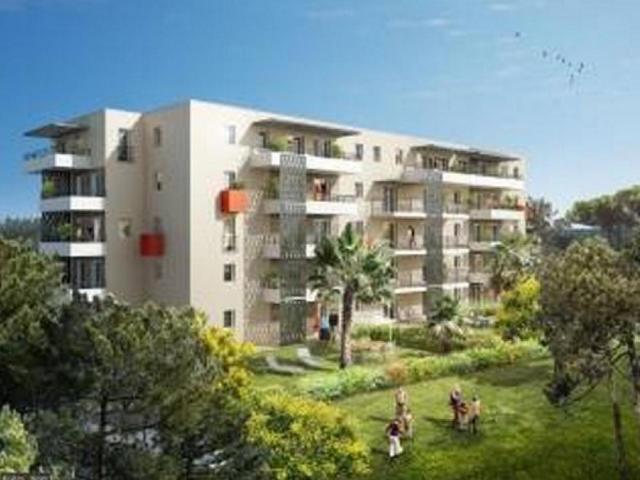Дома во Франции
Продажа домов
С 2000 года продажа домов во Франции россиянам возросла на 150%. Хотя россияне по-прежнему составляют лишь малую часть покупателей французской недвижимости, их доля неуклонно растет. Если Вы озаботились покупкой дома во Франции, то в первую очередь необходимо определиться с местом. Как правило, россияне выбирают объекты в разумной удаленности от международного аэропорта, откуда осуществляются регулярные рейсы на Россию. Это Париж, Ницца, Марсель. Многие пользуются аэропортом Женевы как ближайшим к Альпийским склонам.
Во-вторых, следует оценить качество дома. Каждому хочется купить дом недорого, но это не всегда означает оптимально. Да и ответ на вопрос «сколько стоит дом» не столь однозначен. В центральной части страны вдали от крупных городов Вы сможете приобрести неплохой загородный дом во Франции и за 200 000 евро. Это будет где-нибудь в окрестностях Руана, Анже, Ренна, Лиможа. Это глубокая провинция, но все же это Франция. Там встречаются варианты от 120 тысяч евро. Если речь идет о том, чтобы купить дом на юге Франции, то на удалении 10-30 км. от берега достойное жилье может стоить 400-500 тыс. евро, а у самого моря цены будут приближаться к миллиону евро, даже если это не самые престижные районы.
Как купить дом
После оценки состояния дома, инфраструктуры вокруг него, рекомендуем поторговаться с продавцом. Французы торгуются по цене не очень резво, но шанс скинуть 10-15% всегда есть. После этого составляется и согласуется Предварительный договор — Promesse de Vente или Compomis de Vente. В этом документе определяются основные положения будущего основного договора — стороны, цена, порядок оплаты, срок заключения финального договора, а также определяется личность нотариуса, который будет вести сделку. На этой стадии вносится задаток ок. 10%. Продать или купить недвижимость во Франции без участия нотариуса невозможно. Во Франции нотариус является основной фигурой при заключении сделок купли продажи. Любого нотариуса Вы можете найти в официальном реестре. И если агент не упоминает участие нотариуса в сделке — Вам нужно скорее переориентировать на иной объект и иного агента. Чаще бывают ситуации присутствия двух нотариусов — со стороны покупателя и со стороны продавца. Это особенно часто происходит при покупке элитных вилл, стоящих миллионы. Но даже недорогой дом во Франции заслуживает тщательной нотариальной проверки — на права собственности продавцов, на наличие обременений, на разрешение на строительство. С точки зрения самой процедуры покупка дома на побережье никак не будет отличаться от покупки дома в глубинке.
Покупка дома во Франции - отзывы клиентов
Екатерина В. (Санкт-Петербург): Мы всегда хотели иметь дом у моря во Франции и с видом на море. Приехали искать дом в Ницце, но там за 500 000 евро домов нет, там вообще у моря нет отдельных домов, да и ценник на дома сильно выше желаемого. За 500 000 евро можно купить хорошую квартиру 2-3 спальни, да и то не на первой линии, может на второй-третьей. Дома в Каннах там также оказались не по карману, да и не нужно. Зачем жить в постоянной тусовке. Поехали дальше по побережью в поисках дома на Лазурном Берегу и нашли волшебное место Сан-Рафаэль. Чуть далее него в районе Лез Иссамбр начали смотреть дома и один из них точно отвечал нашим пожеланиям: был примерно в 600 метрах от моря, на возвышенности, откуда открывался замечательный вид — панорама Лазурного Берега с лазурной гладью воды. Пляж внизу — полудикий, никаких толп туристов. Сам дом площадью 180 м2 с бассейном. Дом не новый, но в отличном состоянии. Три спальни, две ванные, гостиная с камином, столовая-кухня, террасы с перголами. Гараж. Что еще нужно ? Вот уже год, как у нас есть свой дом во Франции и я ничуть не жалею.
Владимир К. (Набережные Челны): По профессия я художник, но так никогда и не довелось писать, двадцать лет проработал в банке. Приехал я отдыхать весной на Лазурный Берег — в принципе и не планировал покупать недвижимость во Франции. И вот оказался я в Антибе. Это старинный городок с узкими улочками, живописными домишками. И тут на меня нашло юношеское вдохновение. Я понял, почему Пикассо писал дома в Антибе и пейзажи Антиба. Поехал, как безумный, в Ниццу, нашел там магазин с холстами, красками (ведь ничего такого с собой не было) и сел на раскладном стуле на улице писать. Написал за два дня три полотна. Четвертое не завершил, потому что уже был билет обратно. Через месяц добавил пару дней к июньским праздникам — и в Антиб, с незавершенным полотном улиц и домов Антиба. Приехал и понял, что буду приезжать сюда при каждом удобном случае. Недвижимость в Антибе в итоге приобрел почти случайно. Писал картину на улице, когда мимо шла девушка-риэлтор с русскими клиентами, которые смотрели квартиры или дома в Антибе. Они остановились смотреть на мои творения. Слово-за-слово — и через день я уже как клиент осматривал дома в старом Антибе. Выбрал строение — почти развалину, на три уровня с мансардной террасой на четвертом уровне. Менять надо было все. Снаружи мой дом в Антибе смотрелся неплохо, но внутри я в итоге фактически нормальными были только стены, перекрытия и крыша — и то хорошо. Будучи художником, всю отделку продумывал сам и сам частично реализовал. И до сих пор еще продолжаю работы, ведь теперь я в своем доме в Антибе провожу каждый отпуск и каждые длинные выходные.
Борис А. (Москва): Я люблю отдыхать в горах, горные лыжи — это моя стихия. Обычно отдыхали в Шамони, но однажды жена захотела посмотреть Лазурный Берег. Оказалось, что от южных отрогов Альп там всего час пути. Это приятно обрадовало. Мы поняли, что можно удачно сочетать отдых на море летом и занятия горнолыжным спортом зимой, имея не два, а один дом во Франции. Остановились на доме в Рокабрюн-Кап-Мартан с видом на море. Теперь я езжу оттуда на горнолыжный курорт Dolceaqua. Это в соседней Италии, но все равно очень близко. Многие полагают, что найти такой вариант по концепции «и море, и горы» сложно. Кто-то думает о Коста Браве в Испании, ссылаясь на близость Андорры. Но до Андорры там 2-3 часа пути, а мне до Dolceaqua – 30-40 минут.






